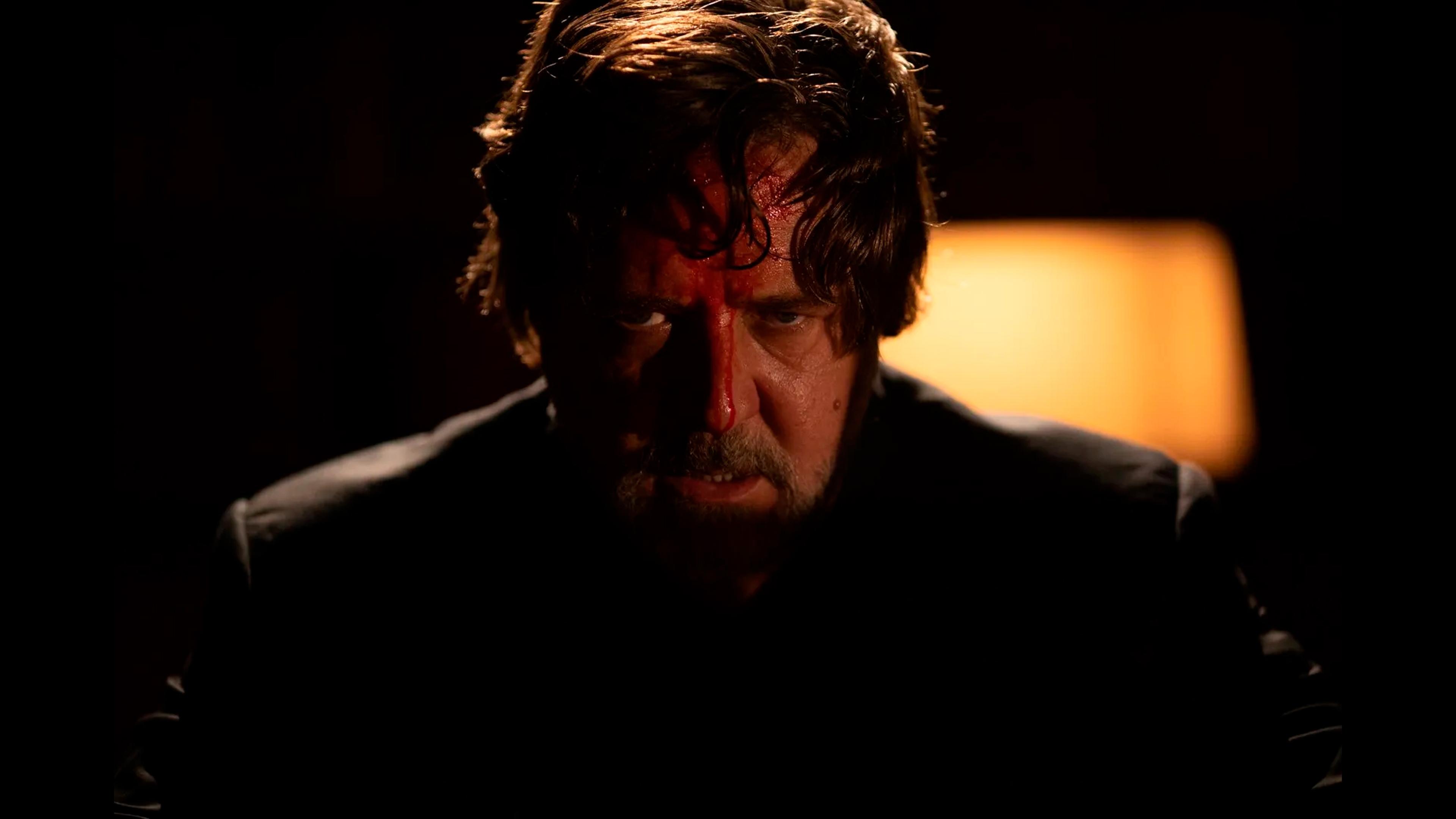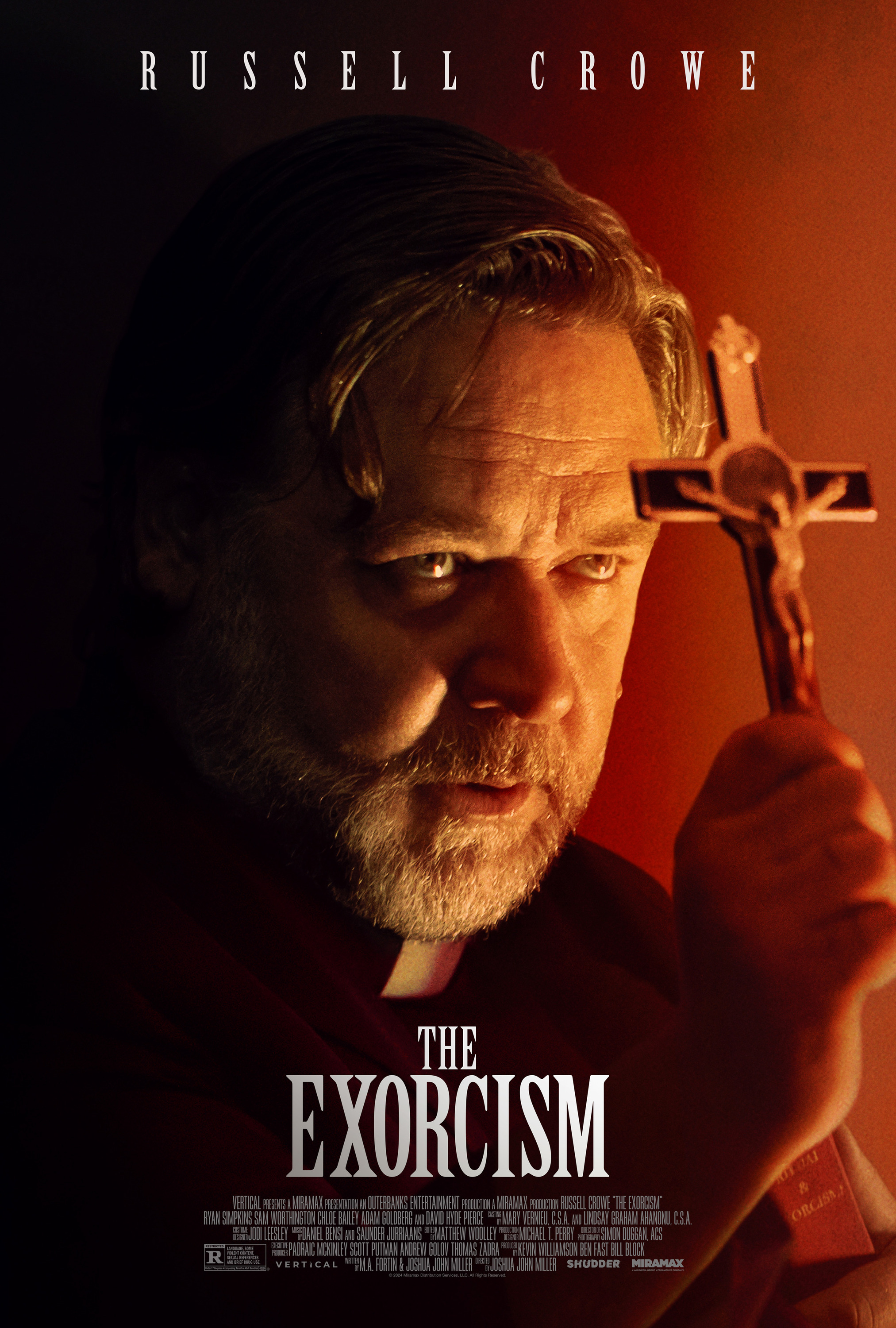The Exorcism: A Terrifying Journey Into The Supernatural
Have you ever felt like something is watching you? Something beyond the veil of reality that we often take for granted? The exorcism is more than just a story—it's a glimpse into the terrifying world where faith, fear, and the unknown collide. From ancient rituals to modern-day accounts, this phenomenon has left its mark on history, culture, and the human psyche. So, buckle up, because we’re about to dive deep into the shadowy corners of the supernatural.
Now, let’s be real here. When most people hear the word “exorcism,” their minds instantly go to that iconic movie, *The Exorcist*. You know, the one with the creepy little girl saying, “The devil is here!” But there’s so much more to it than Hollywood dramatization. Exorcism is a real practice, steeped in tradition, fear, and sometimes even hope.
This isn’t just about ghosts or demons; it’s about understanding the complexities of belief systems and how they shape our perception of the world. Whether you’re a skeptic or a believer, the exorcism phenomenon is undeniably fascinating. So, let’s explore this spooky yet intriguing topic together, shall we?
- Year Of The Snake Unveiling The Mystique And Power Of This Enigmatic Zodiac
- Hindu Festival Of Colors A Vibrant Celebration Of Life And Spirituality
What Exactly Is The Exorcism?
Alright, let’s break it down. The exorcism, in its simplest form, is the act of driving out evil spirits, demons, or other malevolent entities from a person, place, or object. It’s like a supernatural eviction notice, but instead of a landlord showing up, you’ve got a priest armed with holy water, prayers, and maybe even a crucifix.
Exorcisms are rooted in various religious traditions, but the most well-known ones come from Christianity, particularly the Catholic Church. However, different cultures and religions have their own versions of exorcism rituals. For instance, in Hinduism, there’s the concept of "bhoot vashikaran," while in Islam, it’s called "ruqyah." Each tradition brings its own unique twist to the process, but the core idea remains the same—banishing evil.
A Brief History of Exorcism
Exorcism isn’t exactly a new trend. In fact, it’s been around for thousands of years. Ancient civilizations like the Egyptians, Babylonians, and Greeks all had their own methods for dealing with unwanted supernatural visitors. Back in the day, they didn’t call it an exorcism per se, but the goal was the same—rid someone or something of evil influences.
- Cass Elliot Daughter The Untold Story Of A Music Icons Legacy
- Nicholas Sparks Books A Journey Through Love Loss And Redemption
Fast forward to the Middle Ages, and exorcism became a staple in Christian practices. The Catholic Church even developed official guidelines for conducting exorcisms, which are still used today. These guidelines are like a supernatural rulebook, outlining everything from who can perform an exorcism to the specific prayers that must be recited.
Why Do People Believe in The Exorcism?
Belief in exorcism isn’t just about superstition. For many, it’s a matter of faith and trust in something greater than themselves. Think about it—when someone feels like they’re being tormented by something they can’t explain, turning to religion or spirituality might be their only hope.
But why do people believe in demons or evil spirits in the first place? Well, it could be due to a combination of cultural influences, personal experiences, and even psychological factors. Some experts suggest that certain mental health conditions, such as schizophrenia or dissociative identity disorder, might be misinterpreted as possession. Others argue that the human brain is wired to seek patterns and explanations, even in the face of the unknown.
Common Signs of Possession
So, how do you know if someone’s possessed? Contrary to popular belief, it’s not always as obvious as a head spinning around or speaking in tongues. Here are some common signs that might indicate possession:
- Unusual Strength: The person exhibits strength far beyond their physical capabilities.
- Speaking in Foreign Languages: Known as glossolalia, this is when someone speaks fluently in a language they’ve never learned.
- Resisting Religious Symbols: A possessed individual might react violently to holy objects or prayers.
- Extreme Changes in Behavior: Sudden shifts in personality, aggression, or paranoia can be warning signs.
Of course, these symptoms could also point to a medical or psychological condition, which is why it’s crucial to consult professionals before jumping to conclusions.
How Does The Exorcism Work?
Exorcism isn’t just about waving a crucifix around and hoping for the best. It’s a highly ritualistic process that requires preparation, focus, and faith. Let’s take a closer look at how it’s done:
The Preparation Phase
Before an exorcism can take place, the exorcist must prepare both themselves and the person believed to be possessed. This often involves prayer, fasting, and sometimes even a thorough investigation to ensure that the situation truly calls for an exorcism.
Exorcists are usually trained clergy members who have undergone extensive study and practice. They’re not just winging it—they know what they’re doing, or at least they hope they do!
The Ritual Itself
During the actual exorcism, the exorcist typically recites prayers, sprinkles holy water, and uses religious symbols to combat the evil presence. The process can last anywhere from a few hours to several days, depending on the severity of the case.
It’s worth noting that exorcisms aren’t always successful. In some cases, the demon or spirit might resist, leading to a prolonged and grueling battle. And yes, it’s as intense as it sounds.
Real-Life Exorcism Cases
While movies and books might dramatize the concept of exorcism, there are plenty of real-life cases that will give you goosebumps. Let’s explore a few of them:
The Case of Roland Doe
One of the most famous exorcism cases is that of Roland Doe, a pseudonym used to protect the identity of a young boy who underwent an exorcism in the 1940s. His story inspired the movie *The Exorcist* and remains one of the most chilling accounts of possession in modern history.
Roland reportedly exhibited all the classic signs of possession, including levitation, speaking in foreign languages, and displaying immense strength. The exorcism itself was conducted by two priests over several weeks, with terrifying results. Some say the boy was cured, while others believe the entity was never fully banished.
The Anneliese Michel Case
Another harrowing case is that of Anneliese Michel, a German woman who underwent a series of exorcisms in the 1970s. Her story is both heartbreaking and disturbing, as she suffered from severe mental health issues that were misdiagnosed as possession.
Anneliese’s exorcism lasted for months, during which she endured extreme physical and emotional distress. Tragically, she passed away at the age of 23, leading to a controversial trial that questioned the role of the Church and the medical community in her treatment.
Is There Any Scientific Explanation?
Now, let’s talk science. While many believers swear by the power of exorcism, skeptics argue that there’s a more logical explanation for these phenomena. Some experts suggest that conditions like epilepsy, schizophrenia, and Tourette’s syndrome can mimic the symptoms of possession, leading to misdiagnosis.
Others point to the power of suggestion, where individuals might unconsciously act out what they believe possession looks like. It’s a complex topic, and opinions vary widely depending on one’s perspective. One thing’s for sure—there’s still a lot we don’t understand about the human mind and the supernatural.
Where Does Science Stand?
Scientists are hesitant to outright dismiss the concept of exorcism, but they also stress the importance of exploring all possible medical explanations first. In many cases, what seems supernatural might actually be a treatable condition. That’s why collaboration between religious leaders and healthcare professionals is crucial in cases of suspected possession.
Can Anyone Perform An Exorcism?
Here’s the thing—exorcism isn’t something you can just pick up like a hobby. In most religious traditions, only authorized individuals, such as priests or spiritual leaders, are allowed to perform exorcisms. This is to ensure that the ritual is done safely and respectfully.
Attempting an exorcism without proper training can be dangerous, not just for the person involved but also for those around them. So, if you’re thinking about trying it yourself, think again. Leave it to the experts, folks.
What Happens If You Mess It Up?
Exorcism gone wrong is no laughing matter. There have been cases where amateur attempts at banishing evil spirits have resulted in serious consequences, including injury or even death. This is why it’s so important to approach the subject with caution and respect.
Exorcism in Popular Culture
Let’s not forget the impact that exorcism has had on pop culture. From movies to books to TV shows, the concept of exorcism continues to captivate audiences worldwide. Some of the most iconic films, like *The Exorcist* and *The Conjuring*, have brought the supernatural into our living rooms, sparking both fear and fascination.
But why are we so drawn to these stories? Is it the thrill of the unknown, or do we secretly hope that there’s more to life than what we can see? Whatever the reason, exorcism remains a powerful symbol of humanity’s struggle against the forces of darkness.
Why Are We So Obsessed?
Our fascination with exorcism might stem from our innate desire to understand the mysteries of the universe. It’s a way of grappling with the unexplainable and finding meaning in the chaos. Plus, let’s be honest—nothing beats a good scare every now and then!
Conclusion: Should You Believe in The Exorcism?
In the end, whether you believe in exorcism is entirely up to you. Some see it as a vital part of their faith, while others view it as a relic of the past. What’s important is that we approach the topic with an open mind and a healthy dose of skepticism.
So, what do you think? Is exorcism a real phenomenon, or just a product of human imagination? Whatever your stance, one thing’s for sure—it’s a topic that will continue to spark debate and intrigue for years to come.
And hey, if you’ve made it this far, why not leave a comment or share this article with a friend? Who knows? You might just spark a conversation that changes someone’s perspective. Until next time, stay curious and keep exploring the mysteries of the world around you!
Table of Contents
- What Exactly Is The Exorcism?
- A Brief History of Exorcism
- Why Do People Believe in The Exorcism?
- Common Signs of Possession
- How Does The Exorcism Work?
- Real-Life Exorcism Cases
- Is There Any Scientific Explanation?
- Can Anyone Perform An Exorcism?
- Exorcism in Popular Culture
- Conclusion: Should You Believe in The Exorcism?



Detail Author:
- Name : Sabrina Wisoky
- Username : jewell.fritsch
- Email : rowe.marion@towne.biz
- Birthdate : 1984-11-19
- Address : 67331 Boyd Underpass South Taya, FL 53488
- Phone : 850.975.9798
- Company : Heaney Inc
- Job : Interaction Designer
- Bio : Ipsa consequatur nam velit cum odit. Est est est voluptatum culpa sed. Nihil tempora dolor soluta id commodi explicabo.
Socials
instagram:
- url : https://instagram.com/fernandobeer
- username : fernandobeer
- bio : Totam aliquam error cum temporibus accusantium. Sed eligendi quis voluptates perspiciatis qui.
- followers : 6421
- following : 2997
facebook:
- url : https://facebook.com/fernando_real
- username : fernando_real
- bio : Repellendus excepturi reprehenderit beatae nam voluptatem architecto quia.
- followers : 963
- following : 2269
twitter:
- url : https://twitter.com/fernandobeer
- username : fernandobeer
- bio : Voluptate eius voluptates iste occaecati. Qui aut consequatur sit error. Excepturi cum reiciendis quam eum. Provident ut recusandae et.
- followers : 4776
- following : 362